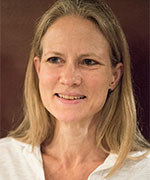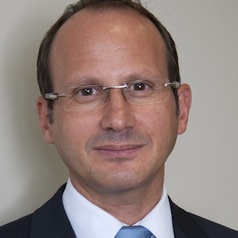Programme -subject to change-
09.00 - 09:30
Registration and Coffee
BEAM CONSULTANCY - PROVIDING ILLUMINATION & SUPPORT
Keir is an Occupational Therapist and DBT therapist who has worked in mental health over the past 20 years. In the past 10 years he has worked in the field of 'personality disorder', working in and setting up a number of day therapeutic communities. Keir completed his MSc in Personality Disorder this year where his research focused on how teams were able to avoid the use of long term private hospitalisation. Keir set up Beam Consultancy in 2017 to help organisations work more effectively with this client group and cease the use of expensive OOA provision. Keir blogs at TheDiagnosisOfExclusion.wordpress.com and regularly contributes to the Mental Elf website.
Jane Cannon MBE and Ian Gould gave up their industry careers to care for their teenage daughters when the girls’ mental health deteriorated. They lost both their daughters to suicide and are now campaigning for vastly improved identification and treatment of Borderline Personality Disorder as it starts emerging in adolescence.
✔
BPD in CAMHS seems to be the “Voldemort Diagnosis” – it must not be named! We believe this is misguided.
✔
Failure to identify BPD symptoms in young people means CAMHS services are not investing in the treatments needed by these young people – often leading to the kind of inpatient stays that the NICE Guidelines warn against and to further deterioration.
✔
Failure to inform patients and carers of the potential for this diagnosis disempowers them. Everyone has a right to research and understand their own condition. The absence of honest diagnoses leaves young people feeling “mad and bad” and losing trust in professionals’ ability to help them.
✔
We understand that many people hold opposite views to us and we respect their rights to hold those views. We look forward to a calm and constructive debate around the issues we raise.
Peter Tyrer (Imperial College, London) is a member of the World Health Organisation ICD-11 Revision Group for the Reclassification of Personality Disorders. He has worked in the field for over 30 years, and is clinically active, and has published over 60 original papers on personality disorder.
The Case for Personality Disorder in the Spotlight
✔
Personality disorder affects one in ten of the population and cannot be ignored or airbrushed from knowledge or practice
✔
The current classifications are not fit for purpose
✔
The new ICD-11 classification destigmatises personality disorder by making personality dysfunction universal and abolishing all categories of the condition
✔
Borderline personality disorder is not a useful diagnosis but vested interests make it an option in the new classification – we do not think this is necessary and will explain why
10:30 - 11:10
The Case against Diagnosis
Prof Peter Kinderman,Professor of Clinical Psychology at University of Liverpool
11:10 - 11:40
Morning Coffee, Networking
11:40 - 12:10
What Works for 'personality disorder'
Dr Mark Sampson,
Consultant Clinical Psychologist Clinical Lead for Community Mental Health (CMH) Mid Mersey, Transformation Programme, Clinical Lead for the Relational and Emotional Strengthening Pathway Mersey Care Foundation Trust
12:40 - 13:10
Panel Discussion with morning speakers
13:10 - 14:00
Lunch, Networking
Workshops
CONFERENCE CONTINUES AND SPLITS INTO WORKSHOPS, Group will be split into Workshop A and B. Same workshops will be repeated in the afternoon session.
Hollie Berrigan,
Advanced Lived Experienced Practitioner and Integrative Counsellor
15:00 - 15:20
Afternoon Coffee Break and Networking
Workshops
CONFERENCE CONTINUES AND SPLITS INTO WORKSHOPS, Group will be split into Workshop A and B
Hollie Berrigan,
Personality Disorder Knowledge and Understanding Framework
15% OFF FOR GROUPS (3 DELEGATES OR MORE)
Discounted Registration for Service Users (max 10)
We also offer a free Service User place for every 9 bookings received. Contact Romy Meuter:
[email protected] to be added to the waiting list.
Organisationally-funded £195.00
Registration Charity/Student Sector £145.00
Service Users (Only 10 spaces available)£75.00
Alternatives to the PD label: The Power Threat Meaning Framework
Learning Outcomes:
✔
Brief introduction to the PTM Framework
✔
Illustrating how the PTM Framework offers an alternative to the 'PD' label

Independent Trainer
Dr Lucy Johnstone is a consultant clinical psychologist, author of 'Users and abusers of psychiatry' (2nd edition Routledge 2000) and co-editor of 'Formulation in psychology and psychotherapy: making sense of people's problems' (Routledge, 2nd edition 2013) and ‘A straight-talking guide to psychiatric diagnosis’ (PCCS Books 2014), along with a number of other chapters and articles taking a critical perspective on mental health theory and practice. She is the former Programme Director of the Bristol Clinical Psychology Doctorate and was the lead author of 'Good practice guidelines on the use of psychological formulation' (Division of Clinical Psychology, 2011.)
She has worked in Adult Mental Health settings for many years, most recently in a service in South Wales. She was lead author, along with Professor Mary Boyle, for the ‘Power Threat Meaning Framework’, a Division of Clinical Psychology-funded project to outline a conceptual alternative to psychiatric diagnosis, which was published in January 2018.
Lucy is an experienced conference speaker and lecturer, and currently works as an independent trainer.
Her particular interest and expertise is in the use of psychological formulation, in both its individual and team versions, and in promoting trauma-informed practice.

Consultant Psychiatrist in Forensic Psychotherapy, Director of the Portman Clinic and Director of Medical Education, Tavistock and Portman NHS Foundation Trust
Jessica Yakeley is a Consultant Psychiatrist in Forensic Psychotherapy and Director of the Portman Clinic, and Director of Medical Education, Tavistock and Portman NHS Foundation Trust. She is also a Fellow of the British Psychoanalytic Society and Editor of the journal Psychoanalytic Psychotherapy. Her particular fields of interest and research include antisocial personality disorder, violence, paraphilias, risk, psychiatric training, and psychodynamic methods of teaching about the doctor patient relationship. She has published numerous peer-reviewed papers and chapters, and six books including the textbook The Oxford Specialist Handbook of Medical Psychotherapy, and Learning About Emotions in Illness. She is Vice Chair of the Royal College of Psychiatrists Psychotherapy Faculty, Research Lead for the British Psychoanalytic Council, and Research Lead for the Royal College of Psychiatrists Medical Student Psychotherapy Scheme National Strategy, aimed at recruiting medical students into psychiatry from all medical schools in the UK.
Consultant Psychiatrist in Forensic Psychotherapy, Director of the Portman Clinic and Director of Medical Education, Tavistock and Portman NHS Foundation Trust
✔
What is mentalising and how mentalisation-based treatment helps individuals diagnosed with personality disorder
✔
How the non-mentalising clinician promotes non-mentalising in the patient
✔
Managing one’s own mentalising capacity within the therapeutic relationship

Faculty of Medicine, Department of Brain Sciences
Peter Kinderman research interests are in psychological processes underpinning well-being and mental health, and in particular psychotic phenomena such as delusions and hallucinations.
In 2014 he launched a free, online, open-access course exploring our understanding of mental health and well-being.
Kinderman has published widely on the role of psychological factors as mediators between biological, social and circumstantial factors in mental health and well-being. In his 2019 book, A Manifesto for Mental Health: Why We Need a Revolution in Mental Health Care, he critically examines the dominant ‘disease-model’ of mental health care and offers a contemporary, biopsychosocial, alternative. He highlights evidence that our mental health and wellbeing depend largely on the society in which we live, on the things happen to us, and on how we learn to make sense of and respond to those events.
He is also interested in the application of such psychological science to public policy.
Roles and awards In 2000, he received the British Psychological Society's Division of Clinical Psychology's 'May Davidson Award', an annual award for outstanding contributions to the field of clinical psychology, in the first ten years after qualifying.
He served the British Psychological Society as President (2016-2017) and twice as elected Chair of the Society's Division of Clinical Psychology;[3] from 2004 to 2005, and again from 2010-2011. In that role, he worked with the UK Department of Health, the BBC, the Health Professions Council, the European Union Fundamental Rights Agency and the UK Office for National Statistics, amongst others. In 2017, he resigned from being Vice-President of the British Psychological Society, citing the formation of the Association of Clinical Psychologists (UK) as a trigger. Kinderman is a member of the Council for Evidence Based Psychiatry, and a trustee of the Joanna Simpson Foundation.

Consultant in General Adult and Rehabilitation Psychiatry, Springbank Ward Fulbourn Hospital
I am a consultant psychiatrist working at Springbank Ward, Fulbourn Hospital, in Cambridge. Springbank is a specialist unit looking after women with complex presentations and a diagnosis of personality disorder (PD).
There are only 2 units like Springbank in the NHS. We receive referrals from all over the UK, often regarding patients that have been treated in the private sector using coercive practices without benefit. I have developed an interest in reducing restrictive practices, as a way of improving the working environment and the outcomes for our patients. I share the positive results we have achieved in order to encourage people to move away from the default restrictive management approach to treat PD, which is generally unhelpful. The ward’s journey is one of the only positive stories about an NHS ward in the BBC archive ((https://www.bbc.co.uk/news/health-47393050).
I trained as a general adult and rehabilitation psychiatrist at Cambridgeshire and Peterborough NHS Foundation Trust. During my training, I carried out an MPhil in Psychiatric Research at the University of Cambridge. My medical training and foundation years were spent in London at Guy’s, King’s, and St Thomas’ School of Medicine and the Maudsley.
Identifying and Challenging in Teams and Organisations
Learning Outcomes:
✔
The Impact of the Stigma Associated with this Diagnosis
✔
Individual Interventions to reduce stigma
✔
Organisational Interventions to reduce Stigma
 Booking Hotline (UK): +44 (0) 20 8144 2944 / +44 (0) 20 3637 9252
Booking Hotline (UK): +44 (0) 20 8144 2944 / +44 (0) 20 3637 9252
 Booking Hotline (UK): +44 (0) 20 8144 2944 / +44 (0) 20 3637 9252
Booking Hotline (UK): +44 (0) 20 8144 2944 / +44 (0) 20 3637 9252